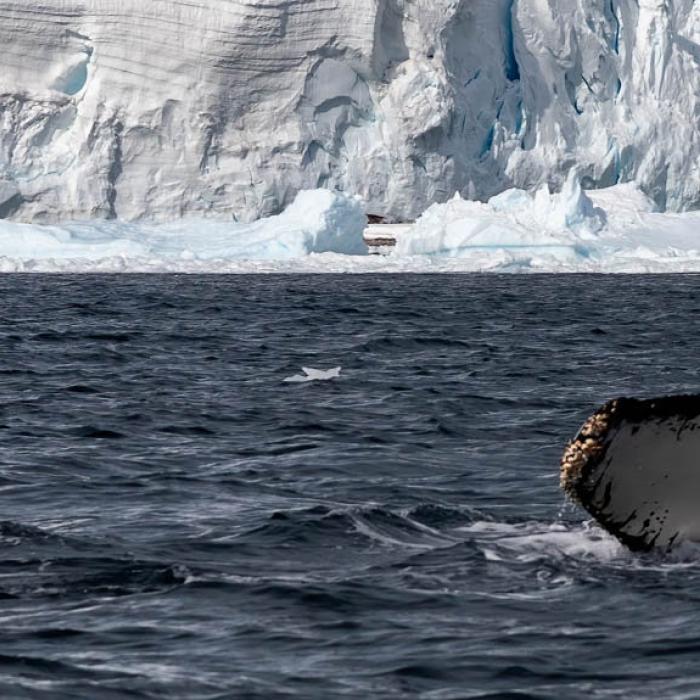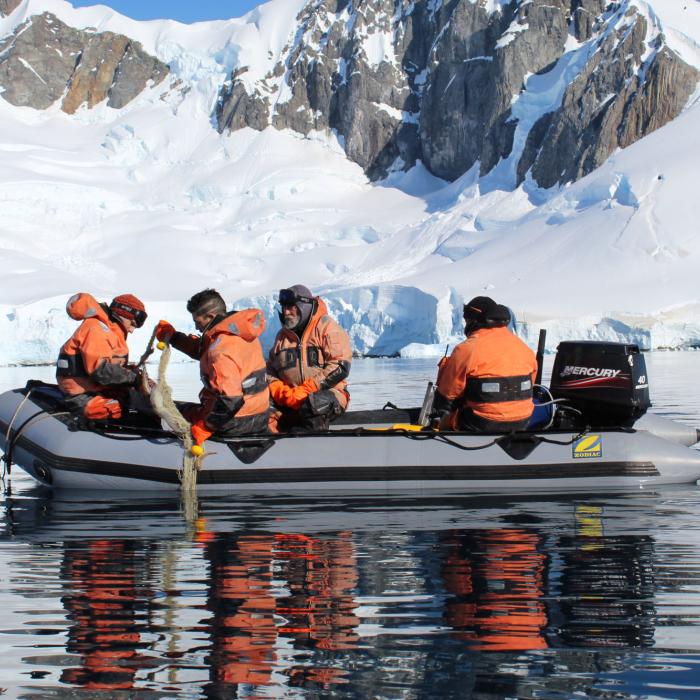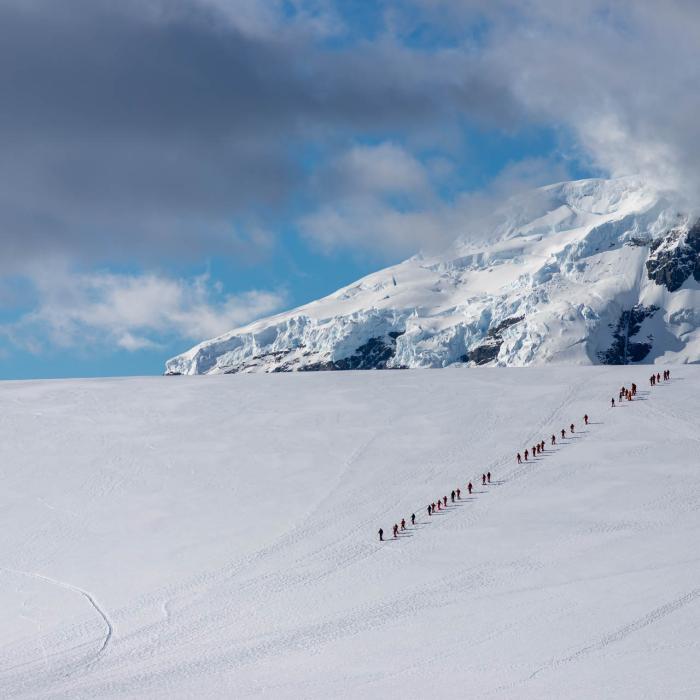
IAATO recognises “hitch-hiking” invasive species study
The International Association of Antarctica Tour Operators recognises a study by scientists from the University of Cambridge that assesses the risk of introducing non-native marine species by “hitching a lift” on supply, research, tourism, and fishing vessels travelling to Antarctica.
The study, which includes data shared by IAATO, tracked the movements of vessels that routinely visit the protected region.
IAATO, which has commissioned non-native species research in the past to help inform its safe and environmentally responsible tourism mission, acknowledged the importance of the study, sharing it with its committees for further discussion.
Amanda Lynnes, IAATO Director of Environment and Science Coordination, said: “Non-native species can impact whole ecosystems and are of huge global conservation concern. This study helps us, and other polar stakeholders understand the risk of introducing marine non-native species through shipping, particularly in the face of climate change.
“The ongoing protection of the Antarctic environment has shaped IAATO’s mission and vision since our inception in 1991; it’s the lifeblood of what we do, and we always seek to understand what member operators have to do in order to have no more than a minor of transitory impact on this precious place.”
Since its inception, IAATO has supported science in Antarctica, recognising its crucial role in providing information to drive responsible management and decision-making. IAATO cooperates with National Antarctic Programmes and other research institutes, particularly valuing long-term monitoring projects that are useful for identifying changes in the environment. Other research, including non-native species studies, has helped IAATO operators develop increasingly robust standards over the years.
Recognising that human activity can serve as a vector for non-native, IAATO previously commissioned research to mitigate the risk of introducing pathogens and non-native species. The process begins long before embarkation, with pre-departure advice provided in the form of our ‘Don’t Pack a Pest’ pamphlet and mandatory IAATO briefings for all visitors travelling with our operators before they even reach Antarctica. This includes thorough boot and equipment cleaning and disinfecting with approved biocide before and after setting foot on land – from the South Pole to the Ross Sea, from the Antarctic Peninsula to South Georgia and the Falkland Islands (Islas Malvinas).
Gina Greer, IAATO Executive Director, said: “We are proud to support studies such as this one by sharing our valuable data. IAATO and the membership regularly discuss and revisit our protocols.
“Throughout the year members gather to have open discussions on environmental protection, safety, and self-management with a view to evolving existing practices. Findings shared by the scientific community provide a useful basis for our routine review.”


